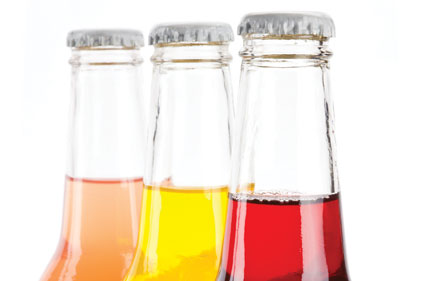F. Akar of Department of Pharmacology, Faculty of Pharmacy, Gazi University in Etiler, Ankara, Turkey, and colleagues, authors of the study, found evidence from an animal study indicating that consumption of HFCS-based beverages increased serum triglyceride, very low density lipoprotein or VLDL, insulin and blood pressure.
High-fructose corn syrup is widely used in food and beverage industries as a sweetener. Consumption of this sweetener has been associated with the obesity epidemic, although the industry rejects such a claim. The current study was intended to examine the effects of HFCS consumption on metabolic and cardiovascular functions, specifically endothelial and vascular function in rats.
Also the study tested resveratrol, a red pigment found in red grapes and red wine and other plant fruits/leaves to see if it can help prevent or minimize the effect of HFCS.
For the study, 10% and 20%HFCS and 50mg/L resveratrol beverages were given rats and metabolic parameters and a whole list of other physiological properties or functions were measured including "endothelial relaxation, vascular contractions, expressions of endothelial nitric oxide synthase (eNOS), sirtuin 1 (SIRT1), gp91(phox) and p22(phox) proteins and superoxide generation in the aortas."
In addition to increasing serum triglyceride, very low density lipoprotein, and insulin levels as well as blood pressure, HFCS "impaired relaxation to acetylcholine and intensified contractions to phenylephrine and angiotensin II were associated with decreased eNOS and SIRT1 whereas increased gp91(phox) and p22(phox) proteins, along with provoked superoxide production in the aortas from HFCS-treated rats."
On the other hand. resveratrol efficiently restored HFCS-induced functions.
The researchers concluded "intake of HFCS leads to vascular dysfunction by decreasing vasoprotective factors and provoking oxidative stress in association with metabolic disturbances. Resveratrol has a protective potential against the harmful consequences of HFCS consumption."
HFCS has been found to contain high levels of dicarbonyls, - sugar degradation products that are very reactive and thus damaging. These chemicals are found high in diabetes mellitus patients. HFCS is also known to carry high levels of mercury. Some research even links HFCS to autism. It is believed that the association between HFCS and obesity is due to the presence of fructose in high fructose corn syrup. Princeton University found eating fructose is more likely to lead to weight gain, compared to eating glucose. Both glucose and fructose are present in high-fructose corn syrup in almost equal amounts.
